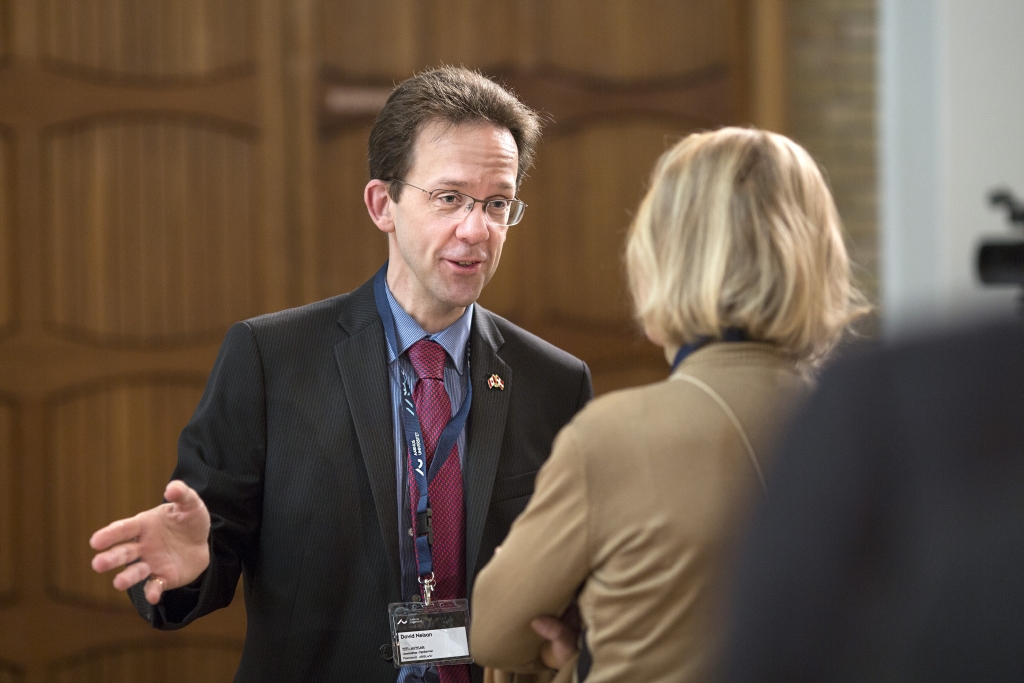Citizens themselves contribute to political mistrust
People have a special ability to detect and disseminate information about egotistic and selfish leaders. In this way, citizens themselves contribute greatly to the proliferation of voter apathy and mistrust of politicians, according to a new study from Aarhus BSS at Aarhus University.

The study by the Department of Political Science at Aarhus BSS shows that the growing trust crisis observed in many Western democracies in recent decades cannot merely be attributed to news criteria from the media and prioritisation of personal-interest stories. Citizens play a significant role in the rapid spread of these types of articles at the expense of positive stories.
"People are better at remembering information about selfish politicians and are better and more motivated to forward that type of information to other people compared to information that focuses on political substance," explains Troels Bøggild, associate professor in political science at Aarhus BSS, Aarhus University.
"This is because there is an inherent bias in human memory that affects the type of political information we pass on in our social network. This means that citizens are part of exaggerating the problem of selfish politicians," he continues.
Troels Bøggild, together with Associate Professor Lene Aarøe and Professor Michael Bang Petersen from the Department of Political Science at Aarhus BSS, Aarhus University, is behind the study titled "Citizens as Complicits: Distrust in Politicians and Biased Social Dissemination of Political Information", which has just been published in the prestigious journal American Political Science Review.
Gossip lives on
The conclusions of the study are based on a number of internet-based experiments using a representative sample of 3,353 participants in the US. The experiments were carried out in the form of a telephone game. The participants in the first group read an entire news article, which they then recounted to the next group, who then recounted it to another group. Only the information considered important survives such treatment.
"We observed that people pick up and communicate more about strategy and the selfish behaviour of politicians than the political content itself," says Troels Bøggild. He continues:
"We can also see that mistrust spreads. When negative information about politicians is overrepresented, people who receive it second and third hand will also have less trust in those politicians and support their political decisions to a lesser extent. That’s the crux of it," says Troels Bøggild.
It was once a survival mechanism
According to Aarhus BSS researchers, this innate psychological tendency stems from the history of human development, where it was an evolutionary advantage to pay particular attention to leaders who lined their own pockets at the expense of the community.
"At that time, there were no formal control bodies to keep leaders in check, so this was people’s way of protecting themselves against authoritarian leaders and non-cooperative behaviour," says Troels Bøggild.
The researchers are now applying this to a political context, and linking it to possible negative consequences for political discourse. The behaviour of politicians, the news values of media, and the level of attention of citizens for politicians who abuse their position of power to promote their own interests, are all key ingredients in this dynamic.
However, the researchers stress that the attention people give to personal interest stories is not necessarily an issue. Together with the media, vigilant citizens can prevent corrupt politicians from coming to power.
Further info:
Troels Bøggild, Associate Professor of Political Science
Aarhus BSS, Aarhus University
Email: tboeggild@ps.au.dk
Mobile phone: +45 40359376
Lene Aarøe, Associate Professor of Political Science
Aarhus BSS, Aarhus University
Email: leneaaroe@ps.au.dk
Michael Bang Petersen, Professor of Political Science
Aarhus BSS, Aarhus University
Email: michael@ps.au.dk
Mobile phone: +45 20775944
